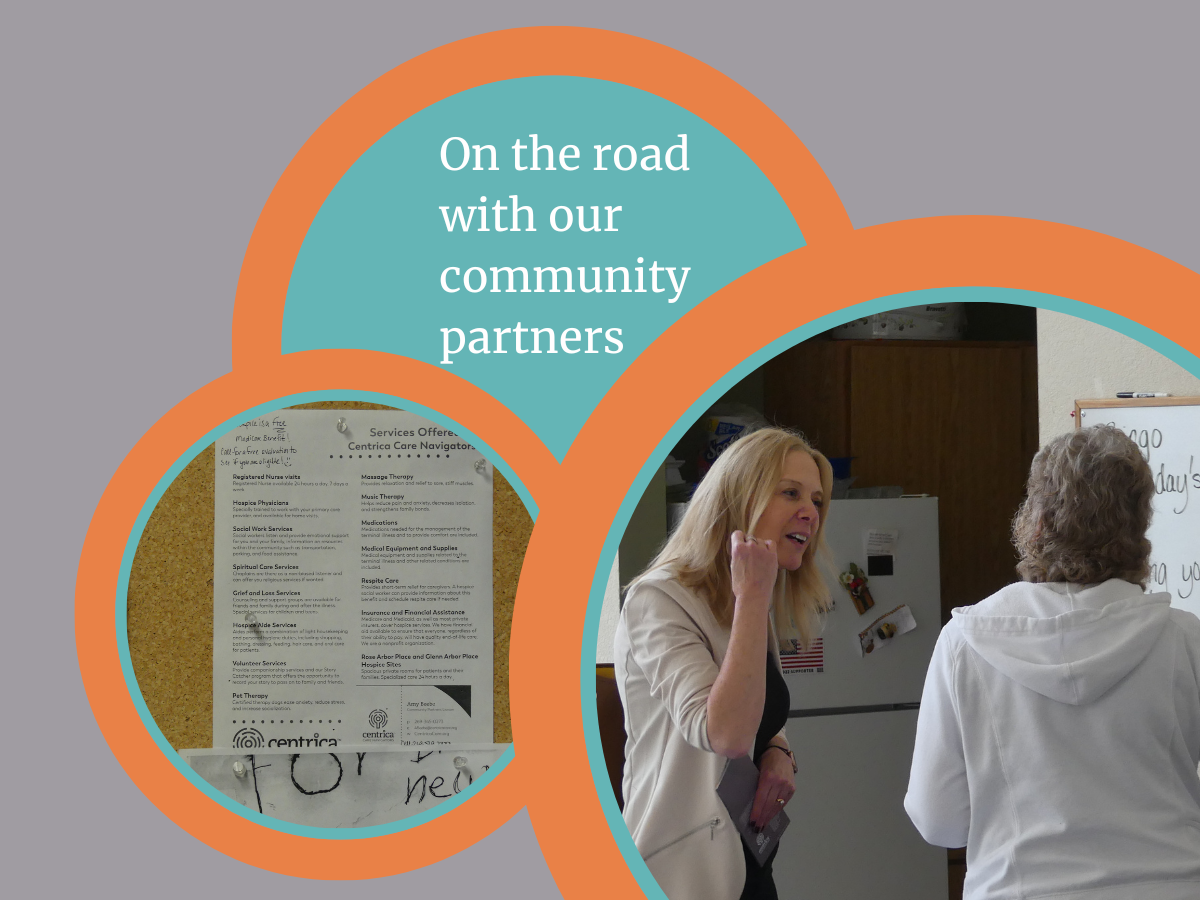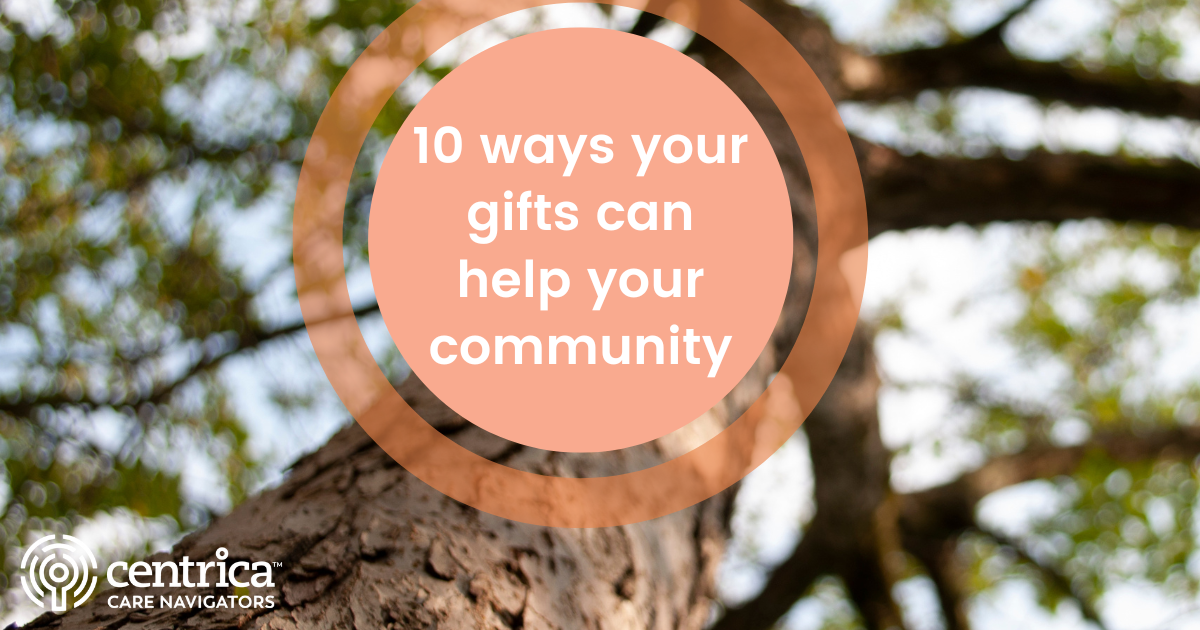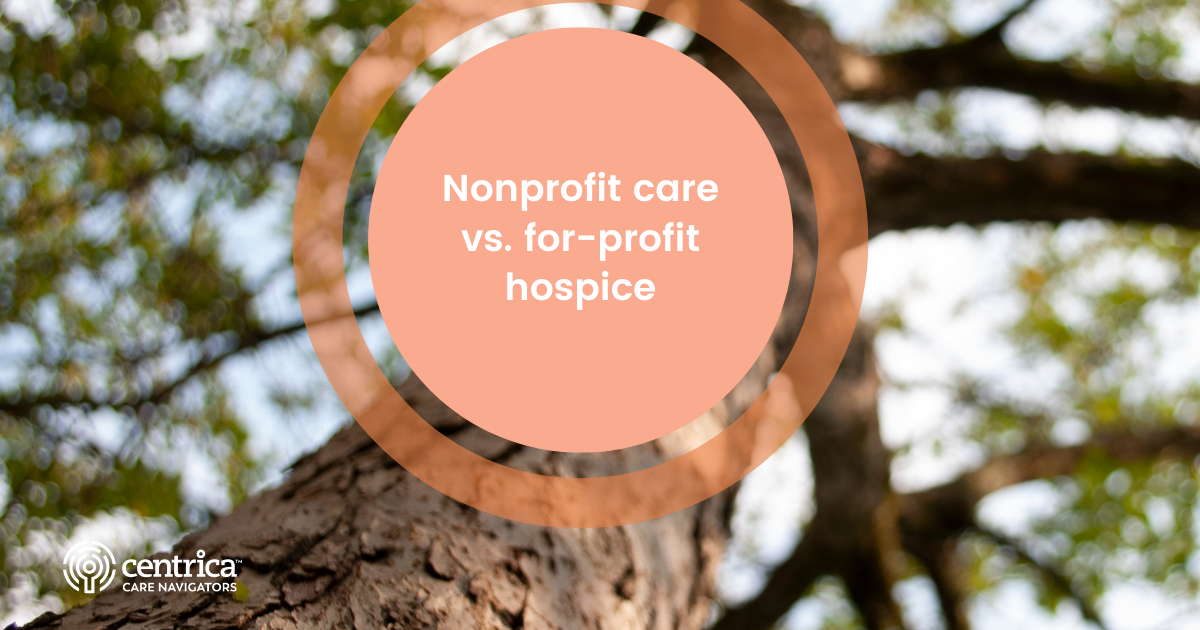The role of any business — even a nonprofit one, like Centrica Care Navigators — is to reach out to potential customers to help them with a need. In our case, that means explaining to people that there is an option for compassionate care that respects the wishes of patients and their caregivers.
Those explanations often come from a doctor, or staff at a care facility like a senior living site, where nurses and aides help patients with their day-to-day activities. The next step for many patients, when it’s appropriate, is to move to hospice care in a facility or often in their own home.
Care staff want to know their patients are receiving the same quality care in hospice that they themselves provide. They want to build relationships with hospice teams. That starts with our Community Partners Liaisons, or CPLs. They are the “community face” of Centrica Care Navigators, often the first people staff at care facilities meet.
What does a CPL do?
CPLs provide information to skilled nursing facilities, adult foster care homes, independent living, assisted living, memory care facilities, physician practices, and anywhere you might find that patients will be referred to hospice care if it’s appropriate for them. They travel to locations throughout southwest Michigan and leave behind brochures and flyers encouraging people to reach out to learn more. It’s a great first step in teaching about the experience and services Centrica Care Navigators has available.
Our team visits their facilities to introduce themselves, and also to get a glimpse of what they do and how they operate. A newly built care center may be open to bringing in a guest speaker like our CPL or a staff doctor to talk about the basics of hospice, or the need for advance directives.
A facility might not have any patients ready for hospice immediately, but having our promotional material and our CPL’s business card means we’re the first place they think of when it is time to make a referral — thanks to our CPL, they understand the quality services we provide.
Each day, CPLs make a plan for where they’re going to visit the next day. I traveled with our CPL Amy for a day and stopped at nine facilities in South Haven. They were a variety of locations, including a few new sites discovered during an internet search and some care centers she has stopped at before. That’s where staff knows her, and where making return visits can be helpful in encouraging referrals.
“Places say, ‘We appreciate that you came back,’” she says. “A lot of people show up one time and expect the facility to reach out.”
It’s about relationships
The role of a CPL is something like a sales job, with frequent stops at local businesses and phone calls to check in with contacts. Their job isn’t to promote a product, or try and get people to buy, though; instead, it’s to encourage the staff at senior care facilities and other locations to learn about hospice care, and share that knowledge with caregivers and families that have patients staying there.
Maybe even more importantly, the job is to encourage the staff to take action, referring patients to Centrica Care Navigators so they can receive appropriate compassionate care.
It’s not about getting the most patients, or writing exclusive contracts with care facilities. It’s about relationships.
“I don’t call it sales,” Amy says. “It’s more sharing, making connections, so they’ll think of us when they need hospice. As long as they know about us I consider it a win.”
The places Amy visits are already familiar with hospice, and they know how important it is to have a partner they can count on when it’s time for a patient to go on the next step of their care journey.
More education
The CPLs are always looking for more people to educate about hospice. They give presentations and are constantly looking for new ways to inform people about Centrica Care Navigators.
Amy came to her CPL job after a career as a nurse case management, in charge of taking care of individual patients’ discharge needs — in fact, she paused during her day in South Haven to answer a question from someone at a facility about discharging a patient and ending their care.
“It was an opportunity to integrate my past clinical experience,” she says. “I like talking face-to-face, and using my experience to talk about how great hospice is.”
She says she has a standard talk ready to go, if someone asks what hospice is, what Centrica Care Navigators can do, and when hospice care is needed. That’s usually not necessary on the first visit to a facility, though.
“It’s not always about giving the spiel,” she says. “Sometimes it’s just about giving them information, and listening, and letting them know I’m their resource — use me!”
You can learn more by exploring our website or calling Centrica Care Navigators at 269.345.0273.




